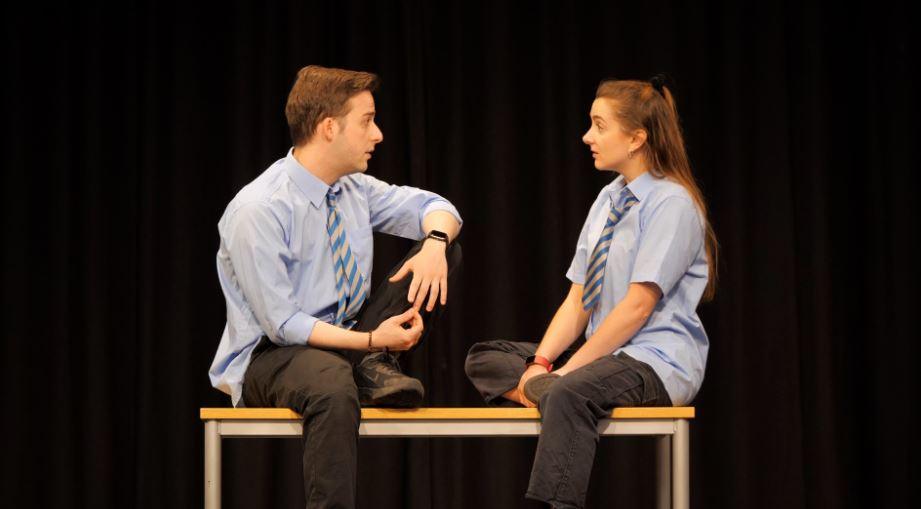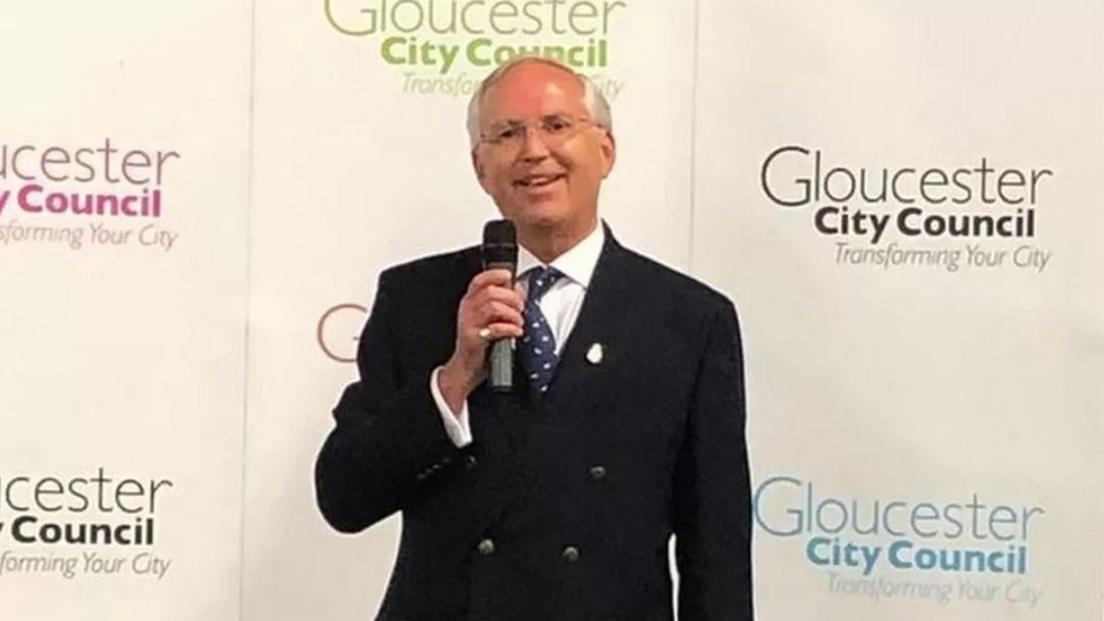Play tackling toxic masculinity to visit schools

The play by Loudmouth Education and Training, will be performed at 48 schools across Gloucestershire
At a glance
Children at 48 Gloucestershire schools will be able to see the play which has been created by Loudmouth Education and Training
Calling It Out has been funded by Police and Crime Commissioner Chris Nelson
It is hoped the play will open up discussions around toxic masculinity and violence against women
- Published
A new play that aims to tackle "lad culture" is set to go on a tour of schools in Gloucestershire.
Calling it Out is aimed at children aged 13 and above and will explore topics such as sexist jokes, catcalling and toxic masculinity.
It has been created by Loudmouth Education and Training, a theatre company that specialises in relationships and safeguarding issues.
Fifty performances across 48 schools have been funded by Gloucestershire Police and Crime Commissioner (PCC) Chris Nelson.
Mr Nelson said while it is not an easy thing to change, he hoped the performances would open up discussions about, and influence people's behaviour around, misogyny.
'Embedded in culture'
He told BBC Radio Gloucestershire: "Toxic masculinity and misogyny are difficult issues but they are severely embedded in our culture."
Designed with young people and experts to help open up conversations about sexist behaviour, the play hopes to encourage young people to call out inappropriate conduct.
"Women and girls have grown up with ever since they were born," Mr Nelson continued.

Police and Crime Commissioner Chris Nelson said he hoped the play would open discussions around inappropriate behaviour between students
"The best way is to start young and influence our children so they are thinking in the right way and we don’t have this toxic masculinity – sharing nude photographs, inappropriate touching, cat calling – all the sort of ways that men can objectify girls and women.
"The play touches on various ways men and boys can call it out, be a good bystander and say what probably what most men are feeling."
Mr Nelson said he used to think "older men were the culprits" especially "with the way they've grown up where there was no education about this issue."
However, he said looking closer, he was surprised to find young people "are more misogynistic".
'Good catalyst'
He believes it could be down to social media.
"Sadly, there are toxic influencers out there, that are followed by lots of young people," Mr Nelson said.
He hopes the play will "counteract the toxic social medias" and will become a "good catalyst for some proper discussion".
"Hopefully the children will then go home and talk about these sort of things with their parents," he added.